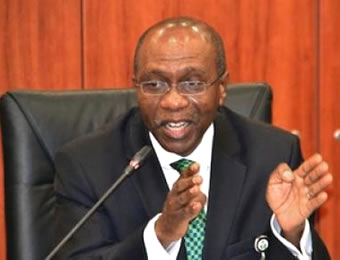Banks have been on the firing line in recent weeks over regulatory breaches. Just recently, nine lenders were suspended from the foreign exchange market for failure to remit $2.274 billion belonging to the Nigeria National Petroleum Corporation (NNPC) and Nigeria LNG into the Treasury Single Accounts (TSA).
There were findings also by the Central Bank of Nigeria (CBN) that several other banks were abusing international money transfer guidelines.
On the basis of other money-related functions, banks have got fully involved in diaspora remittances. Yet, above incidences raise concerns about the suitability of the lenders to continue to receive and disburse estimated $21 billion Diaspora remittances to Bureau De Change (BDC) operators.
As such, stakeholders are calling on the apex bank to outsource the dollar distribution role to a reputable independent distributor that would make the funds readily accessible to the BDCs. This, they insist, would strengthen the foreign exchange market.
Many have made the case that judging from the role of BDCs in bridging exchange rate differential between the parallel and official markets, Bureau de Change (BDC) industry remains a critical agent for Nigeria’s economic growth, as well as the stability of the foreign exchange (forex) market.
It was based on this understanding that, the Central Bank of Nigeria (CBN) recently directed commercial banks to sell $50,000 Diaspora-related forex on weekly basis to nearly 3,000 BDC operators. But recent findings show that the lenders are reluctant to comply with the above directive, claiming that they do not have enough.
The banks refused to obey the order despite several pleas by the apex bank that they disburse the funds to the BDC operators to boost liquidity in the forex market. Hence BDC operators question the need for banks to continue to disburse Diaspora remittances estimated at $21 billion annually to BDCs as instructed by the apex bank.
Incidentally, CBN’s complaints that the lenders are violating international money transfer rules, establishing private and company accounts to harvest dollar inflows from abroad without following the right Know Your Customer (KYC) requirements, did not help matters for the banks.
The lenders have been accused by the CBN of engaging in round-tripping, taking advantage of the huge forex gaps between the official and parallel markets.
“Further to the guidelines for the operation of International Money Transfer Service (IMTS) in Nigeria of September 26, 2014, we have observed that some Deposit Money Banks (DMBs) are operating accounts either as companies or companies masking themselves as individuals, for the purpose of illegally receiving money transfer flows into the accounts for onward disbursements to recipients in Nigeria,” the apex bank disclosed.
The CBN acting director therefore ordered the lenders to conduct Know Your Customer’s Business (KYCB) checks on all their customers to ensure that they do not transact in illegal/illicit flow and also freeze compromised/identified defaulting accounts.
Speaking on these developments, President, Association of Bureau De Change Operators of Nigeria (ABCON), Alhaji Aminu Gwadabe, said only 10 per cent of BDCs from the Lagos market have so far accessed dollar from banks since the CBN gave the directive nearly a month ago.
“The proceeds of the international money transfer funds are not CBN money. It is not from the foreign reserves of the CBN. This is money that Nigerians in Diaspora are sending into the economy. Before, this money came through unofficial means, some sending through hands, and at the end of the day, the beneficiary will not even get the money. And in other countries, the Diaspora funds are strictly for BDCs,” Gwadabe explained.
The ABCON boss is urging the CBN to outsource the dollar distribution role to independent distributors since the banks have failed in their assigned role.
The operators confirmed that banks that are so far involved in the dollar sales to BDCs include FirstBank, Ecobank Nigeria, Fidelity Bank, United Bank for Africa and Unity Bank. Others are Diamond Bank, Zenith Bank and Stanbic IBTC Bank.
Gwadabe disclosed that BDCs in Port Harcourt, Kano, Abuja, Onitsha, Maiduguri, Benin and Enugu are yet to get a single dollar from these banks. The ABCON chief said that the banks are also selling dollar far above the interbank rate.
“Instead of staggering the payment, the banks should sell to the BDCs on the same week day, so that the impact will be felt in the market. Our members across the country have funded their accounts but the banks are not selling to them.
“The BDCs that met the CBN’s policy guidelines on the disbursement and cleared by the banks have still not received a dime from the banks,” he added.
CBN Acting Director, Trade & Exchange, W.D. Gotring, had directed through a circular to authorised dealers that all agents to approved International Money Transfer Operators (IMTOs) should sell $50,000 weekly foreign currency, accruing from inward money remittances to licensed BDCs.
The directive was meant to ensure stability of the exchange rate and encourage participation of critical stakeholders in the foreign exchange market. The CBN also accused the banks of buying and selling forex without following stipulated guidelines.
“The CBN has noticed that some Authorised Dealers have continued to buy and sell foreign exchange referred to as ‘free funds’ despite the provision of the circular of March 4, 2004 on the subject,” the circular stated.
CBN licenses 11 IMTOs
To remove oligopoly in the money transfer business, CBN has equally licensed 11 new IMTOs to join Western Union, MoneyGram and Ria, which were previously cleared by the apex bank.
Gwadabe praised this decision, describing it as a right step in the right direction and in line with ABCON’s campaign that new operators be allowed into the market.
The new entrants are Trans-Fast Remittance LLC; WorldRemit Limited, UAE Exchange Centre LLC; Wari Limited, Homesend S.C.R.L, Small World Financial Services Group Limited and Weblink International Limited. Others are Cash Pot Limited, DT&T Corporation Limited, Fiem Group LLC DBA Ping Express and CP Express Limited.
TSA breaches by banks
The nine commercial banks barred by the CBN from the interbank forex market may be fined, analysts at Lagos-based CSL Stockbrokers Limited predicted.
Other financial experts also estimated that although there was no precedence of the case, the apex bank may impose a fine not less than N450 million on all the nine lenders, representing N50 million each to the affected lenders.
Former Executive Director, Keystone Bank, Richard Obire said “The CBN may want to demonstrate to the banks that it took their offences very seriously. The regulator may want to make the fines painful to them as a deterrent to others. Each affected bank may be fined at least N50 million, totalling N450 million in all,” he predicted.
Obire said although the banks are already facing hard times, but letting them go without a fine could provide a wrong precedence for the industry.
BDCs as engine block of the economy
For Gwadabe, Nigeria BDCs can be strengthened to meet the forex demand at the retail end of the market so that they can continue to enhance employment generation in the country.
The ABCON boss believes that despite the challenges facing the economy, the CBN and BDCs can work together and find sustainable solutions that can help the country wriggle out of the ongoing forex crisis and achieve full economic recovery.
Besides, ABCON has reached the final stage of automation of BDCs’ operations in Nigeria, and is seeking for CBN’s certificate of no-objection on the project.
Gwadabe said the automation plan has been received by the CBN, adding that a comprehensive reform of the BDCs has already been unveiled earlier in the year.
ABCON under Gwadabe has also pledged to ensure that purchased funds would be disbursed to end users and for eligible transactions only and shall render weekly returns on purchases from the banks to Trade and Exchange Department of the CBN. He further promised to ensure strict compliance to the provisions of the anti-money laundering laws observance of appropriate KYC principles in the handling of forex transactions.
WATCH TOP VIDEOS FROM NIGERIAN TRIBUNE TV
- Let’s Talk About SELF-AWARENESS
- Is Your Confidence Mistaken for Pride? Let’s talk about it
- Is Etiquette About Perfection…Or Just Not Being Rude?
- Top Psychologist Reveal 3 Signs You’re Struggling With Imposter Syndrome
- Do You Pick Up Work-Related Calls at Midnight or Never? Let’s Talk About Boundaries






